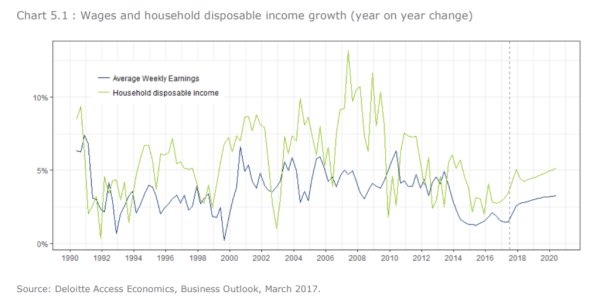Published on the 07/05/2020 | Written by Stephen Duncan

When a crisis strikes, flexibility and proactive management can save NFPs…
As the coronavirus (COVID-19) pandemic spreads throughout the world, governments, businesses and not-for-profits (NFPs) race to adapt and respond to limit human hardships.
As the Australian government for example places restrictive measures on its citizens and economic programs in actions, this is creating uncertainty and causing a crisis of confidence in our financial market.
In this time of public health and economic challenge, NFPs need the full picture of where they stand financially so they can respond quickly to the changing needs in their communities. Although the Australian government is looking to prop up NFPs, the overall economic downturn is likely to cause a decline in donations. It’s critical that NFPs take stock of their current financial situation, take stock of cash flow projections and make early, intelligent decisions to shore up funding and engage donors.
“People want to believe they are making a difference.”
Community needs are growing – will donations keep up?
NFP finance leaders know that charitable donations are closely correlated with the economy. When the market is strong, as highlighted in the chart below, consumer confidence is higher and wages increase, translating to more disposable income and likelihood of generous corporate and individual donations. When it’s heading down, disposable income decreases, and donors are more likely to pull back.
In light of so much economic uncertainty, it is more important than ever to engage your donors and show them the concrete results of how your programs are achieving your mission. Going forward, you’ll want to be able to powerfully demonstrate both financial stewardship and positive outcomes.
Seven things not-for-profits can do right now
No one knows exactly how the current health and economic crises will play out around the world or specifically in A/NZ over the coming months, especially with the Prime Minister stating that we may need to adapt for up to 6 months to completely control COVID-19.
To stay afloat during this crisis, NFPs must be proactive now to trim unnecessary expenses, review programs, and step up donor engagement in order to sustain existing programs and direct new efforts. Here are seven things you can do right now to increase your crisis management capabilities:
1. Steady and ready your team
For NFPs, organisations, people, relationships and community are paramount. COVID-19 has caused undue disruptions, anxiety, and uncertainty both at home, work, and in the community. Now with the stock market in a panic and uncertainty around when it will bounce back, this is likely to impact business donations.
It is critical to communicate with your team often, acknowledging the changing reality and expressing your organisation’s support and flexibility in these tough times. Help your team stay balanced and focused on long-term goals, while supporting day-to-day needs and priorities.
With virtually every worker now being asked to stay home, connecting via video conferencing has never been more important. It also opens up conversations more easily where previously it may have required a physical visit. The goal is to calm fears, support flexibility, stay positive, and encourage your valued team members on a regular basis.
2. Communicate with donors right away
NFPs need to get in front of the inevitable extra funding needs that the pandemic and economic weakness will cause. Ask your existing donors to help you create a cash reserve now that will help meet needs during this rapidly evolving situation. Ensure you have the support of your major donors, by providing them with extra confidence that their contributions are making a difference.
Increasingly, large donors are responsible for a larger share of total contributions. The goal is to ensure you remain among your major donors’ top priorities this year, knowing that smaller donors may have less to contribute in a volatile economy.
3. Stay on top of your financials
Now is an opportune time to deeply analyse your current financial situation. Where can you conserve cash now to prepare for a potential drop in individual donations? Are there any funds that can be redirected to existing programs that meet community pandemic or economic needs? What would it cost to spin up new programs that address new challenges? Your donors will not only appreciate your duty of care but feel as if they are making a difference.
4. Apply donor engagement best practices to your website and communications
Share your vision through powerful imagery. Make sure all your messaging builds and reinforces your brand. Bring donors into your story with metrics that demonstrate the urgency of your mission and personal stories of how you’ve helped. Expand your reach by ensuring your website, social media, and campaigns make it easy for people to give. Make sure you are responsive yet respectful to the current environment. Every donation helps, so people want to believe they are making a difference.
5. Review current programs
Knowing that needs will accelerate at the same time the economy is slowing, it’s time to study recent program performance in terms of financial outlays versus program impacts. What programs have made the biggest difference? What programs will be needed going forward? Your financial management system should be able to provide you with key performance indicators so your team can make informed decisions
6. Apply for new grants
If you will be offering services related to the pandemic, look for federal, state and local grants and apply early.
7. Get creative with fundraising
Social distancing rules have forced physical events to be cancelled or delayed for all industries. This will have a serious impact on in-person fundraising events, such as charity auctions, dinners, and sporting events. Think about how you could recreate some of these experiences online, or better yet, get creative and develop entirely new experiences. Tools like Facebook Live, online meeting software, and social media can help.
Looking ahead
These really are unprecedented times for all of humanity. For local NFPs, the pressure is likely to come from both sides – increased need and potentially shrinking donations. NFP crisis management will require flexibility and proactive management in order to make an impact, meet needs, and find enough funding. We’ll all need to pull together to get through these extraordinary challenges.
Local NFPs will face uncertainty on two fronts – a worldwide public health crisis coupled with worldwide economic contraction. At Sage, we stand with you and wish to express our support for this indispensable industry of caring. We know you will emerge from challenging times stronger, having found innovative ways to assist your communities by staying nimble.
 ABOUT STEPHEN DUNCAN//
ABOUT STEPHEN DUNCAN//
Stephen Duncan is the product marketing manager for Sage Intacct. He draws on over 25 years in the software industry to help businesses and not-for-profits simplify financial management with innovative technology.





























